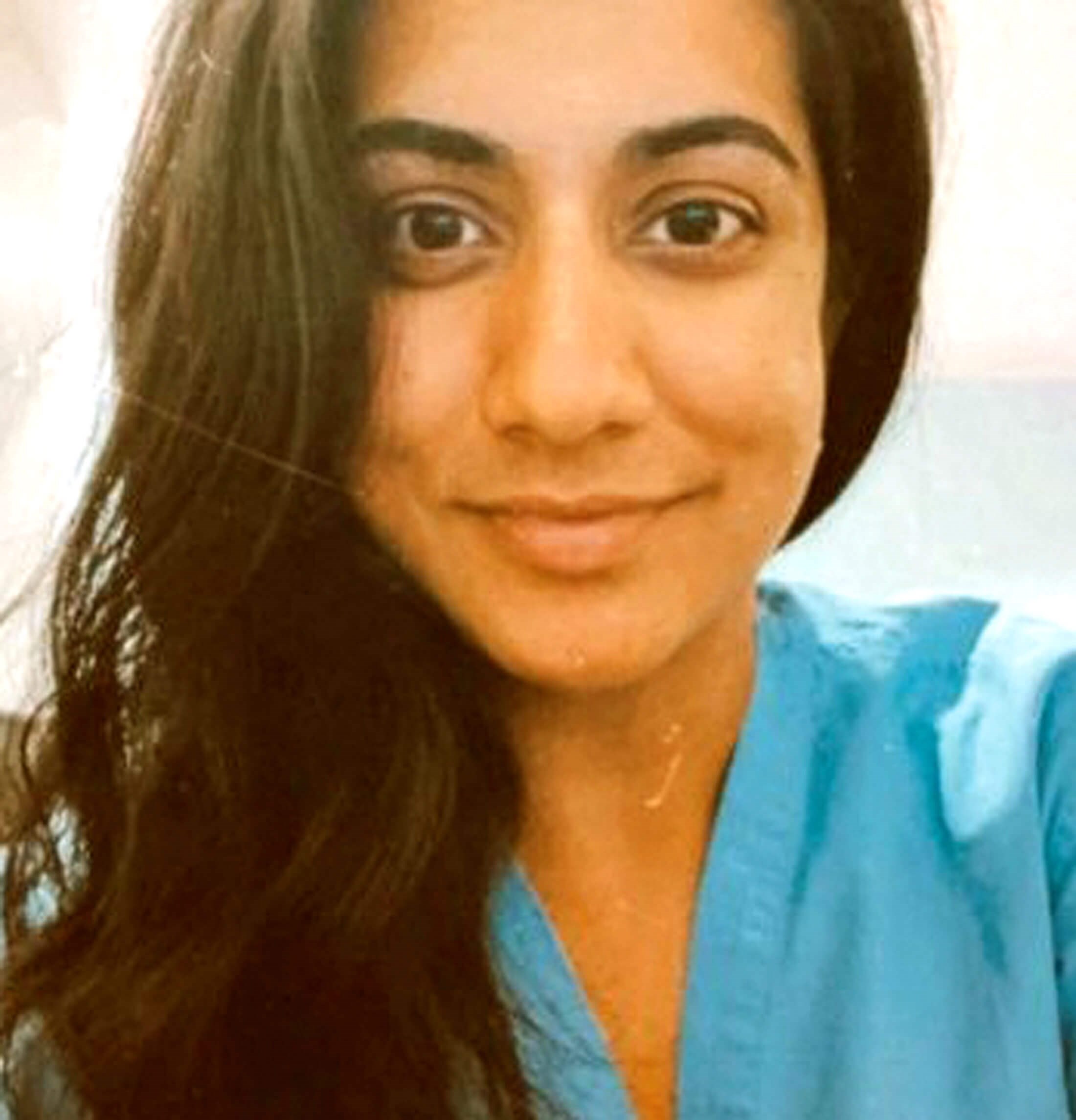We were delighted to catch up with Sarika Nalagatla, new Chair of the BAUS Section of Trainees (BSoT) about her life as a trainee urologist and plans for the association.

Can you tell us a little bit about what led you into the field of urology and the highlights so far?
I remember starting at the University of Aberdeen with an open mind for all specialties and finishing it, being 100% committed to pursuing a career in urology. I was fortunate to have early exposure in Year 3 and my supervisor throughout medical school also happened to be a urologist, who was incredibly encouraging. In my last year I had the opportunity to go to Tauranga Hospital in New Zealand for an elective in urology, where I saw a robotic-assisted laparoscopic prostatectomy (RALP) and Aquablation® for the very first time. I was left in awe of the technological advances within urology. So, what finally drew me in? The people within urology, without a doubt! Being made to feel welcome into a department as part of the team and seeing the numerous subspecialties urology has to offer allowed me to see myself as a future urologist. I feel lucky to have had such inspiring and supportive trainers over the years who have really influenced my career.
Despite COVID-19 impacting my early speciality training (ST) I have had several highlights. The most rewarding has been seeing colleagues who I have mentored achieve their goals and celebrating their successes. I started my BSoT journey as an ST4 and never would have imagined that I would be here today representing BSoT as the new Chair.
What has been the best piece of advice that you have received in your career and what advice would you offer to those following in your footsteps?
A piece of advice that I have been given is to find people who act as propellers and not an anchor as you progress in your career. The journey most people take to become surgeons is challenging and not without its setbacks. Finding your supportive network of people is crucial especially at times of fleeting imposter syndrome! Secondly, be honest and be accepting that it is impossible to please everyone! As I have taken on more roles of responsibility, I have always gone back to this and it has kept me true to myself.
What one paper or textbook would you suggest all trainee urologists read?
After a year of studying for FRCS I have read countless papers and textbooks making this a tricky question to answer! I would consider myself a digital learner and I actually found that Twitter has been immensely useful in discovering new literature and emerging evidence in the field of urology. I would recommend setting up a professional twitter account for all those starting their urological journey. Additionally, the British Urology Researchers in Surgical Training (BURST) group are in the process of publishing LANDMARK, which will collate the key papers in urology. This will no doubt be invaluable to those approaching exams so watch this space!
What do you think have been the most exciting developments in urology in recent years?
Over the last few years, I have seen more and more trainees gaining robotic exposure and training opportunities pre Certificate of Completion of Training (CCT). However, there is a variation across the country. I think for those interested in uro-oncology gaining early experience is essential and I would really like to see this stream-lined and implemented formally into the urology curriculum to overcome the disparity in training. Also, it is hard to ignore technical advances in bladder outlet obstruction (BOO) surgery and we have recently seen it becoming a sub-specialty in its own right.
Many congratulations on your recent appointment as the Chair of BSoT; what would you like to achieve while in the role?
BSoT has been going from strength to strength over the years due to its dynamic and enthusiastic committee members. I hope to build on the initiatives created by my BSoT Chair predecessors and support those facing challenges in training. We will be organising our bi-annual BSoT conference in February 2024 and look forward to welcoming our members. With the new 2021 urology curriculum in full swing now, we as a committee hope to work closely with trainees and the Specialty Advisory Committee (SAC), to see what is working and what can be improved, especially the role of special interest modules and paediatric placements. With fellowships becoming increasing popular post-CCT we will work with BAUS to optimise the fellowship database. Finally, as a member of the BAUS Digital Strategy group we have fresh, new plans in store…but I will not reveal anymore just for the moment!
Would you encourage other trainees to get involved in BSoT and what support do you offer to members?
Yes! Since initially joining BSoT as the West of Scotland regional representative, I have had the opportunity to meet some fantastic people and form meaningful friendships. BSoT provides a sense of belonging, whether it be providing opportunities for networking or raising training-related issues both regionally and nationally. BSoT also has good working relationships with the Association of Surgeons in Training (ASiT) supporting pan-specialty surgeons and addressing global surgical issues, such as the cost of training. In addition to the urology ST3 interview preparation courses, our BSoT regional representatives run the Urology Skills Days for Medical Students and Core Trainees, which have had rave reviews.
And finally, if you have any spare time, what do you do to relax?
I try to spend as much time as possible being outdoors and hiking with my springer spaniel. After a busy year of mostly being glued to my study desk I am looking forward to returning to the hills and also spending more time with my family and friends.








